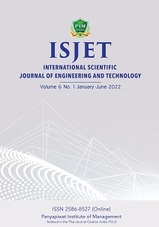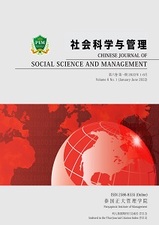Public Realation
The Committee of Civil Servants in Higher Education Institutions’ Fourth Announcement on the Criteria and Methods of Consideration for the Persons to Be Appointed as Assistant Professors, Associate Professors, and Professors stipulates that “The academic work outcomes must have been published in quality academic journals after having passed the double-blinded peer reviews from at least three outside experts from various higher education institutions;
In order to comply with the above announcement, Panyapiwat Journal would like to inform you about the change in its operation as follows:
In order for the received manuscript to be published, it must have passed double-blind peer reviews by at least three experts in the relevant discipline from various institutions, the details of which are shown in the Editorial Board Policy.
This announcement is effective on October 1, 2021








